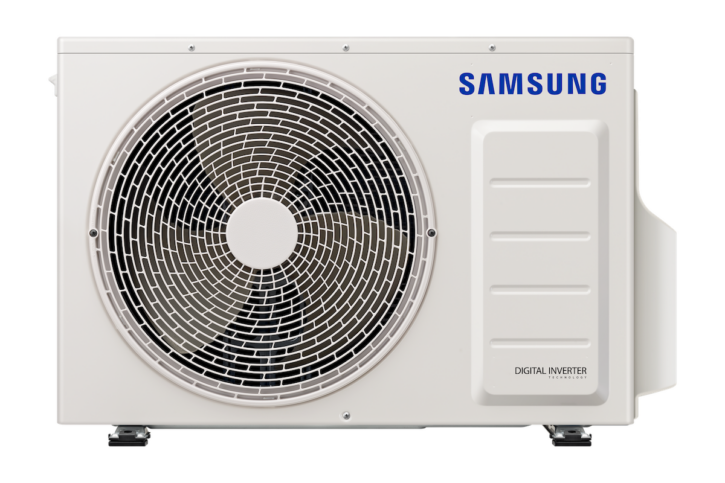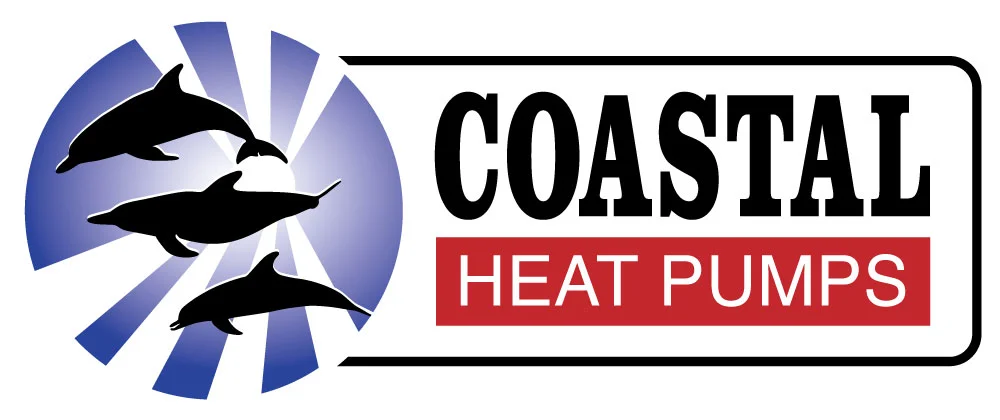
- by Tracy
- Heat Pumps, Heating Tips, News, News2
Are Heat Pumps Noisy?
Most HVAC equipment, including heat pumps, tend to have some noise due to their components like compressors and fans. Some produce more noise than others. The noise level of a heat pump is one of the top questions people ask when considering switching to a heat pump. That’s why we want to look at how a heat pump works, why they have some noise, and the government bylaws and regulations on allowable noise levels for these systems.
How Does a Heat Pump Work?
A heat pump has indoor and outdoor elements made of five main working parts: a compressor, a condenser, a fan, an evaporator, and an expansion valve. Most of the noise comes from the outdoor unit made of the compressor and the condenser fan. However, the noise depends on the heat pump type, brand, model, airflow, and air pressure.
Once you turn the heat pump on, the condenser fan extracts the warm air from outside and transfers it to the refrigerant coolant. The coolant becomes compressed, and its temperature rises. It’s then transferred to the heat pump’s indoor unit. When your home is warm or hot during the summer, the reverse takes place; the heat pump acts as a conditioner and cools your home.
Do All Heat Pumps Make Noise?
Almost every home appliance makes some noise. So, it’s completely normal for heat pumps to make noise. But since they aren’t on 24/7, you’re likely to hear the noise when the system is shutting down or turning on.
The noise levels of heat pumps depend on several factors, including the brand or manufacturer, age, fan model and speed, quality, airflow, airflow pressure, compressor speed, and start and stop functionalities. Installation quality also affects your heat pump’s noise level.
How Noisy are Heat Pumps?
Heat pump and other appliances noise levels are measured in Decibels (dB). Most manufacturers will indicate the noise level on your heat pump to help with decision-making when buying one. Depending on the quality and how well it was installed, an air source heat pump can produce noise on average around 50 dB.
You’ll be surprised to know that heat pumps are quieter than most home appliances – their noise level is way lower than that produced by traffic in Victoria, BC (50-70 dB for street traffic and 60-103 dB for heavy traffic).
But an old or faulty heat pump might be louder than 50 dB since some outdoor and indoor elements like the compressor or condenser might be broken and need repairs from professional heat pump contractors like us, Coastal Heat Pumps.
How Noisy Are Heat Pumps Compared to Other Appliances and Sounds
Let’s look at how heat pumps compare to other common sounds according to data by the US Center for Disease Control (CDC):
Daily Noises Sound Level Rating (dB)
Street Traffic 60 dB to 80 dB
Whispers 20 dB to 30 dB
Moderate Rainfall 50 dB
Refrigerator 60 dB to 70 dB
Dishwasher 70 dB
Heavy Traffic 103 dB
Toilet Flushing 75 dB
Lawn Mower 80 dB
AC Unit 60 dB
Normal Conversation 50 dB
Washing Machine 70 dB
Victoria, BC Heat Pump Bylaws
Government regulations and provisions exist for heat pumps that vary among provinces and municipals. In Victoria, BC, Section 7(C) of the Noise Suppression Bylaw stipulates that heat pumps shouldn’t operate at a level over 50dB between 7 am and 10 p.m. and 45 dB between 10 pm and 7 a.m. The noise level is measured from your property line to the point of reception on an adjacent property.
Watch this video to hear a heat pump in action during a cold spell in Victoria.
Want to know more about heat pumps or looking for reliable installation, maintenance, inspections, repairs, and replacement services in Victoria? Contact us today to get started and to find out about energy efficient rebates and saving up to 50% on your heating bill.
